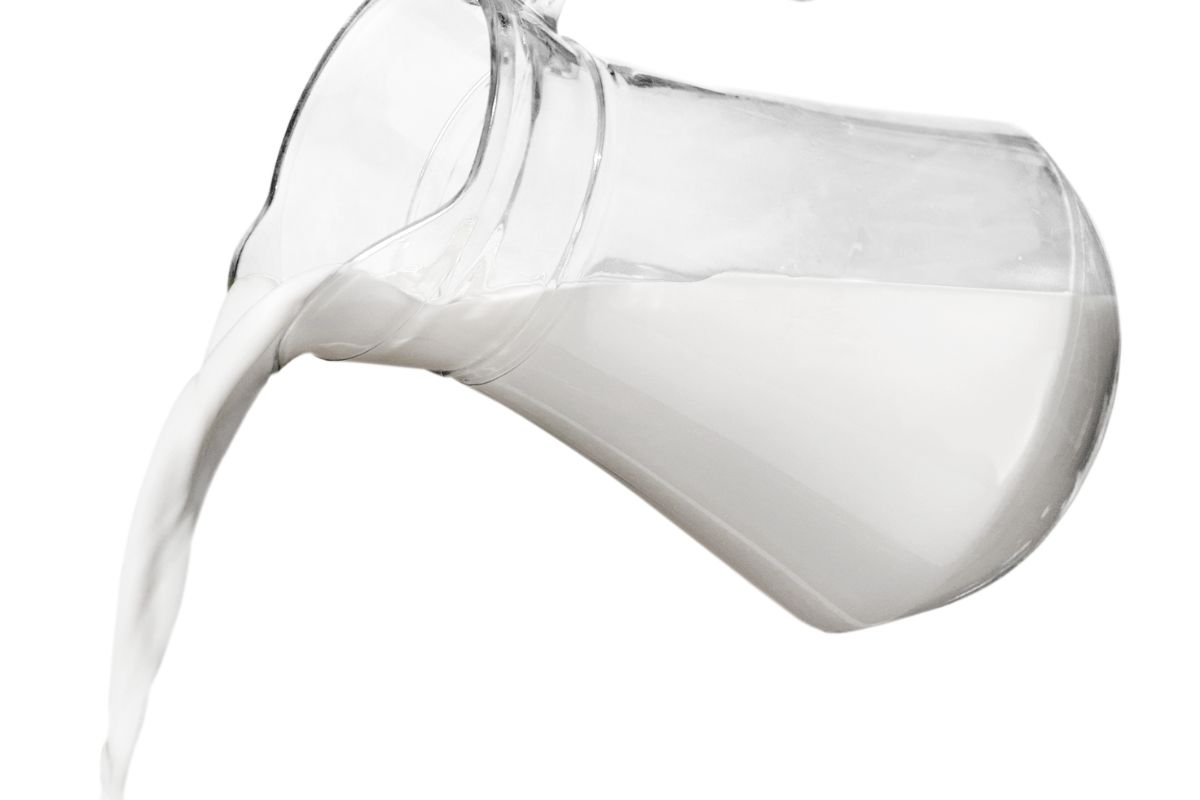Coffee percolators are a timeless tool, and their popularity endures because they can make coffee anywhere – over a campfire or on the stove. But can you put milk in a percolator? To ensure you’re treating your coffee maker with care, we’ve done some research to answer that question definitively.

Is It Safe to Put Milk in Your Percolator?
At face value, it sounds like a good idea to put milk in your coffee maker – but trust us, you don’t want to go there. Not only will the drink taste gross and off-putting, it might also damage your beloved appliance!
See, milk’s got these unique proteins that get seriously heated up when they come into contact with high temperatures. When this happens, all of the water present in the liquid evaporates and combines with other molecules such as fat – creating an unwelcome film around your machine’s internal workings.
Plus if left unchecked for too long due to daily use without proper cleaning (like not doing dishes on time at a dinner party), bacteria can start growing inside – leading to potentially serious health risks due to mold build-up! Yikes!
So why bother taking any chances? You can always add milk later once you’ve brewed up some perfect black gold – no need for unnecessary risk here. So save yourself from potential medical bills or repair fees and stick with plain water.
What If You Brew Your Coffee with Milk?
Brewing coffee with milk is something that can make or break your morning ritual. Sure, you know the basics of percolating – heat up a basin of water until it boils and then allow it to filter through the grounds in a basket beneath – but what happens when you substitute those H2O molecules for cow’s milk?
The flavor profile will inevitably change. Adding some milk post-brew may give your cup an extra kick, but substituting your entire pot with dairy will alter both the taste of your java and its smoothness significantly. Not to mention, boiling milk could produce an off-putting smell as well! You don’t want to be starting out every day like that.
The texture of your coffee can be drastically altered with just a small amount of milk. Everyday coffee drinkers may recognize the difference in flavor, but those who take pleasure in specialty drinks will find it especially disappointing. This isn’t just a minor tweak to the taste – it’s an outright transformation!
How About Steeping Coffee in Milk?
When it comes to steeping coffee, the French press is definitely king. With its built-in plunger, you can easily push all of your grounds down and out of the water once they’ve had enough time to steep — no mess, no fuss!
But if you’re looking for a way to make an espresso or latte with that kick, then using a French press might not be ideal. Milk won’t absorb the flavor from coffee grounds in quite the same way as water does; plus fat molecules will slow down distribution and raise temperatures beyond what’s considered safe levels.
The result? A bitter taste that nobody wants on their morning pick-me-up! And trying to figure out ratios between milk and grounds without careful testing can be like playing roulette – there’s always a chance you could end up losing big time. So unless you want your brew tasting yuck, it’s best to stick with traditional hot water when steeping coffee.
Can You Make Cold Brew Coffee with Milk?
Although it’s possible to use milk when steeping coffee for a cold brew, since boiling the brew isn’t involved in that process, achieving the perfect flavor can be tricky. It may avoid any curdling issues but you’re still unlikely to get your desired taste.
Conclusion
Coffee percolators may seem outdated, but since they still continue to deliver a tasty cup of joe, many households still keep one around. But if you’re a fan of creamy coffee drinks, steer clear from running any type of dairy through your machine – that’s just asking for trouble!
After all the fine-tuning and improvements made over centuries to perfect brewing methods with water alone — it’d be foolish (and maybe even dangerous) to try anything else. So if you want something other than plain black coffee, don’t take the risk; opt for alternative solutions like frothing machines or espresso makers instead!